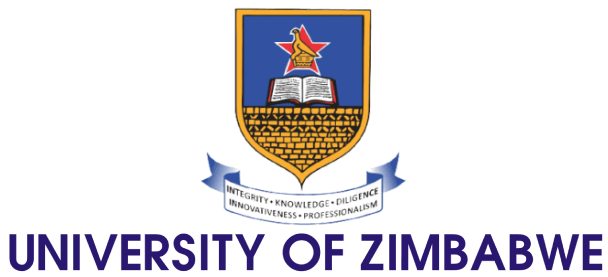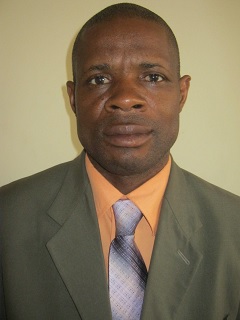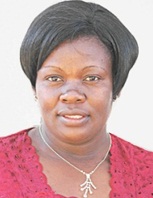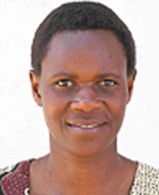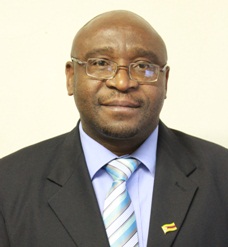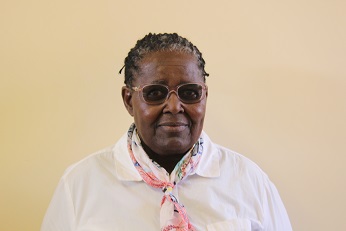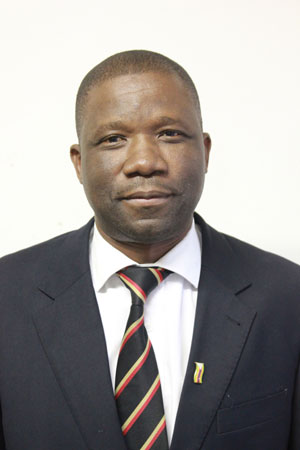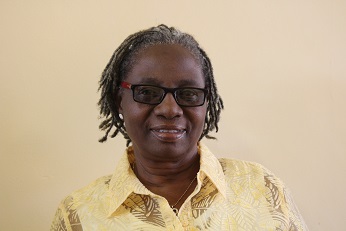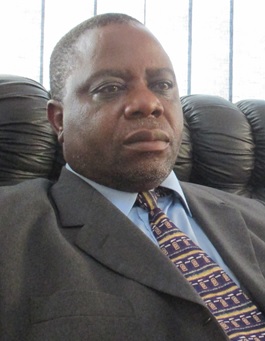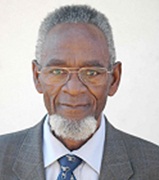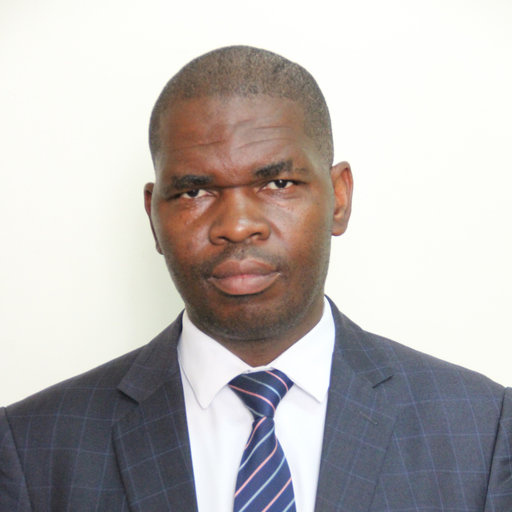Dean

Prof. Charity Manyeruke
Qualifications: DPhil (UZ, 2007): Thesis on “The World Trade Organisation and Developing Countries: The Case of Zimbabwe (International Economic Relations); MSc. International Relations (UZ, 1996); BSc. Politics and Administration (UZ, 1994); Diploma in Human Resources (IPMZ); Diploma in Public Relations (LCCI); Certificate in Research Methods (Addis Ababa, Ethiopia)DPhil (UZ, 2007): Thesis on “The World Trade Organisation and Developing Countries: The Case of Zimbabwe (International Economic Relations); MSc. International Relations (UZ, 1996); BSc. Politics and Administration (UZ, 1994); Diploma in Human Resources (IPMZ); Diploma in Public Relations (LCCI); Certificate in Research Methods (Addis Ababa, Ethiopia)
Research Area of Interest: International Relations, International Economic Relations, Women and Development, Politics, Africa and East Asia, Democracy and Governance.
Email: nevanjicm@gmal.com
Cell:+263 772 354 422
UNISA Degree Courses Passed:
- Commercial Law
- Economics Introduction to Economics & Management Environment I
- Introduction to Economics & Management Environment II
- Business Management
- The Origins of South African Law
- Foundations of South African Law
- Introduction to Law
- Law of Persons
- Financial Accounting Principles for Law Practice
- Skills Course for Law Students
- Research Literacy for Law
- Constitutional Law
- Fundamental Rights
- African Customary Law
- Interpretation of Statutes
- Family Law
Board Memberships
- Council Member – University of Zimbabwe Council
- Vice President - Organisation for Social Science Research in Eastern and Southern Africa-Zimbabwe Chapter OSSREA (2014 - current)
- Zimbabwe Broadcasting Corporation (ZBC)
- ZB Financial Holdings (ZBFH)
- Southern and Eastern African Trade, information and Negotiations Institute – (SEATINI)
- Federation for Young Farmers Club Zimbabwe (FYFCZ)
Former Boards Served:
- Liaison Officer - Organisation for Social Science Research in Eastern and Southern Africa-Zimbabwe Chapter OSSREA (2011 to 2013)
- National Indigenisation Economic Empowerment Board (NIEEB)
- Zimbabwe Gender Budgeting Network
- Trades Centre
Professional Membership
- International Political Science Association (IPSA)
- South African Association for Political Studies (SAAPS)
- American Political Science Association (APSA)
Published Articles
2017
- Makochekanwa, A and C. Manyeruke. (2017). Introduction background and overview, in A Makochekanwa and C. Manyeruke (eds.), The Impact of Dollarization on Zimbabwe, Harare: University of Zimbabwe Publications, pp. 2-13.
- Manyeruke C. (2017). ‘Politics in the Dollarised Economy of Zimbabwe’, in A Makochekanwa and C. Manyeruke (eds.), The Impact of Dollarization on Zimbabwe, Harare: University of Zimbabwe Publications, pp. 78-93.
- Manyeruke, C. (2016). ‘Pan-Africanism and the struggle for the liberation of Zimbabwe', In O Abegunrin and S.O. Abidde, Pan-Africansim in Moderntimes: challenges, concerns and constraints, Laham Lexington Books.
- Kamwendo L M. and Manyeruke C. (2017). Power Politics During and After Funerals amidst the Shona of Zimbabwe. Journal of Pan African Studies, 10(2), 151-164
Refereed Journals
2017
1. Kamwendo Lawrence M. and Manyeruke Charity.2017. Power Politics During and After Funerals amidst the Shona of Zimbabwe. Journal of Pan African Studies, Vol.10, No. 2, California, 151-164.
2015
2. Moyo Sibusiso and Manyeruke Charity. 2015. Decision Making in the Southern African Development Community. Journal of Social Science Studies, ISSN 2329-9150 2015, Vol. 2, No. 2. Nevada, USA, 148-159.
3. Moyo Sibusiso and Manyeruke Charity .2015. Coalition for Security? The SADC Security Community and Lesotho’s Coalition Government. Portuguese Journal of Political Science and International Relations, No. 14. Lisbon, Portugal, 77-92.
2014
4. Manyeruke Charity and Fulton Mangwanya (2014), “Zimbabwe Tobacco Trade”, Global Review, Shanghai Institute of International Studies. Shanghai, 45-60.
5. Chitando Ezra, Madzokere Amanda and Manyeruke Charity (2014) “The Concept of Reciprocity in Zimbabwe and Chinese”. Global Review, Shanghai Institute for International Studies. Shanghai, 16-30
6. Manyeruke, C. and Mangwanya, F. 2014 “Zimbabwe Tobacco Trade”, Global Review, Shanghai Institute of International Studies, Shanghai, 45-60.
2013
7. Manyeruke Charity and Hamauswa Shakespear. 2013. “Rethinking the Concept of a People-driven Constitution in Zimbabwe: The Case of COPAC’s Making Process”, Southern Peace Review Journal, Vol. 2, No. 1, 197 -217
8. Manyeruke Charity, Hamauswa Shakespear and Gwiza Aaram . 2013. “Business Incubation: An Alternative for the Inclusive Government to transform the Zimbabwean Economy”, Southern Peace Review Journal, Vol. 2, No. 1, 155-174
9. Manyeruke Charity, Mposhi Archibold and Hamauswa Shakespear (2013) “The Importance of Patenting Medicines in Africa: The Case of Zimbabwe”, International Journal of Humanities and Social Science, Vol. 3, No. 2, 155-174.
10. Manyeruke Charity and Hamauswa Shakespear .2013. Feminisation of Gender Budgeting: An Uphill Task for Zimbabwe. OSSREA, Vol. 29, No. 1 Addis Abbaba, 77-105.
11. Manyeruke Charity and Mhandara Lawrence .2013. The Church and Political Transition in Zimbabwe: The Inclusive Government Context. Journal of Public Administration and Governance, Vol. 3, No. 1
12. Manyeruke Charity, Hamauswa Shakespear and Mhandara Lawrence .2013. The Effects of Climate Change and Variability on Food Security in Zimbabwe: A Socio and Political Analysis. International Journal of Humanities and Social Science, Vol.3 No.6
13. Mhandara Lawrence, Hamauswa Shakespear and Manyeruke Charity .2013. A Review of the COPAC led Constitution making Process in Zimbabwe (2008-2013). Southern Peace Review Journal (OSSREA), Vol. 2, No. 2, Addis Ababa, 12-30.
14. Manyeruke Charity and Sasa Farai .2013. The Impact and Implications of Zimbabwe’s Second All Stakeholders Conference on Constitution Making. Southern Peace Review Journal (OSSREA), Vol. 2, No. 2, Addis Ababa, 31-48.
15. Chirisa Innocent, Muzenda Archimedes and Manyeruke Charity .2013. The Devolution Debate and the New Constitution of Zimbabwe: An Exploratory Evaluation. Southern Peace Review Journal (OSSREA), Vol. 2, No. 2, Addis Ababa, 86-103.
16. Mhandara Lawrence, Manyeruke Charity and Nyemba Eve .2012. Debating China’s Role in Africa’s Political-Economy. Centre for Chinese Studies (The China Monitor), Issue 2, June 2013, Shanghai, 79-101
17. Hamauswa Shakespear and Manyeruke Charity .2013. “A Critique of United States’ Application of Article 51 of the United Nations Charter in Iraq and Afghanistan” International Journal of Social Science and Humanities, Centre For Promoting Ideas(CPI), USA, Vol 4, No2, 219-230.
18. Madiridze Chumunorwa, Chingono Heather and Manyeruke Charity .2013. The Nexus between Sanctions and Non-Polarity: The Case of Iran. Humberside Journal of Social Sciences, Vol 2, No. 1, 44-56
2012
19. Manyeruke Charity .2012. Death of African Renaissance? Journal of Alternatives for a Democratic Zimbabwe, Vol. 1, Turkey, 5-7
20. Manyeruke Charity .2012. Mitigating the Effects of Global Financial Crisis in Zimbabwe: The Alternative Strategies for the Non-Governmental Organisation. African Journal of Social Sciences, Vol 2, No. 2, London, 1 – 9.
21. Manyeruke Charity and Hamauswa Shakespear, .2012. Unpacking the Controversies Surrounding Youth Empowerment in Zimbabwe with Special Focus on Land Reform. Southern Peace Review Journal. Harare: Southern Institute of Peace – Building and Development, 29 – 47.
22. Manyeruke Charity .2012. Reflecting on Namibia’s Position in the European Union (EU) – Southern Africa Development Community (SADC) Economic Partnership Agreements (EPAs) Negotiations and the Lessons for Africa. Journal of Public Administration and Governance, Vol 2, No. 4, Las Vegas, Nevada, 81-94.
23. Manyeruke Charity .2012. Mitigating the Effects of the Global Financial Crisis in Zimbabwe: The Alternative Strategies for the Non-Governmental Organisations. African Journal of Social Sciences, Vol. 2, No. 2, 2012, Las Vegas, Nevada, 1-9.
24. Manyeruke Charity and Wekwete Naomi .2012. Sexual and Reproductive Health and Rights among Female Students at the University of Zimbabwe: A Participatory Action Research Project, Journal of Feminist Africa, C. African Gender Institute, Cape Town, 91-113.
2011
25. Manyeruke Charity .2011. The Pervasive Nature of Violence against Women in Zimbabwe: The Case of Electoral Related Victimisation. Journal of Human Rights, London, 90 – 101.
26. Manyeruke Charity and Muqayi Solomon .2011. The Impact of the Global Financial Crisis on Southern African States. African Journal of Social Sciences, Vol 1, No. 3, London,149 – 165.
27. Manyeruke Charity .2011. An Explanatory Evaluation of China – Zimbabwe Investments and Trade Relations. Journal of Policy and Strategic Studies, Vol 1, No. 2, London, 96 – 105.
28. Manyeruke Charity and Mhandara Lawrence .2011. Zimbabwe’s Views on Current Transformation of the International System. Global Review. Shanghai Institute of International Affairs Shanghai, 16-30.
2006
29. Manyeruke Charity .2006. The Impact of Chinese Products on Zimbabwean Women. Addis Ababa: OSSREA, Addis Ababa, 85 – 106.
2005
30. Manyeruke Charity .2005. Effects of Land Conflict: The Case of Zimbabwe. Futures Bulletin, June, Vol 30, Issue 1, Budapest, 16-19.
Published Books/ Book Chapters
Book Chapters:
2017
31. Manyeruke Charity .2017. Politics in the Dollarised Economy of Zimbabwe, in The Impact of Dollarisation in Zimbabwe edited by Charity Manyeruke and Albert Makochekanwa. Harare: University of Zimbabwe Publications, 78-93.
2016
32. Manyeruke C. and Hamauswa S. 2016. Agricultural Subsidies: Hope for the Zimbabwean?, in Resilience Under Siege the Zimbabwean Economy, Politics and Society edited by Chitando E, Nyakudya M. And Phiri G., Cambridge: Cambridge Scholars Publishing, 15-34.
33. Manyeruke C. 2016. Opportunities and Challenges of Female Musicians Zimbabwe, in Sounds of Life: Music, Identity and Politics in Zimbabwe edited by Mangena F., Chitando E and Muwati I., Cambridge: Cambridge Scholars Publishing, 19-33
34. Manyeruke C. 2016. Pan Africanism and the Struggle for the Liberation of Zimbabwe, in Pan Africanism Modern Times: Challenges, Concerns and Constraints edited by Olayiwola Abegunrin and Sabelaa Ogbobode Abidde. London: Lexington Books, 47-66
35. Manyeruke Charity. 2016. Opportunities and Challenges of Female Musicians in Zimbabwe, in Sounds of Life: Music, Identity and Politics in Zimbabwe edited by Fainos Mangena, Ezra Chitando and Itai Muwati. Cambridge: Cambridge Scholars Publishing, 16-33.
36. Charity Manyeruke .2016. Comparative Study of Electoral Commissions’ Contribution to Electoral Processes: Zimbabwe, in Election Management Bodies in Southern Africa. A Review by Open Society Initiative for Southern Africa and ECF-SADC 2016, 317-345.
2015
37. Manyeruke Charity and Murwira Ashton. 2015. Sanitary and Phytosanitary Measures: A Factor after the Fast-Track Land Reform for Zimbabwe’s International Markets, in Dialoguing Land and Indigenisation in Zimbabwe and other Developing Countries : Emerging Perspectives, edited by Zifikile Makwavarara, Ruby Magosvongwe and Obert Bernard Mlambo. Harare: University of Zimbabwe Publications, 325-339
38. Solomon Muqayi and Charity Manyeruke .2015. Food Security and Trade Protectionism: The Impact of COMESA’s Agricultural Programmes in Addressing Trade Protectionist Challenges on the Zimbabwean Maize Imports, OSSREA, Addis Ababa.
2014
39. Manyeruke, C. and Murwira, A. 2014. Were it not for the Land Revolution, Cases of Empowerment in Marondera District, in Land: An Empowerment Asset for Africa the Human Factor Perspective, edited by Cloud Mararike. Harare: University of Zimbabwe Publications, 150-164.
40. Manyeruke, C.2014. The Politics of Land Reform in Zimbabwe: Problems and Prospects, in Africa: 50 Years after the Struggles for Liberation. New York: Nova Science Publishers, 83-100.
2013
41. Manyeruke Charity and Government Christopher Phiri (ed) .2013. Complexities of Transformation in Zimbabwe. Harare: OSSREA Zimbabwe Chapter,183 pages.
42. Manyeruke Charity, Hamauswa Shakespear and Gwiza Aaram .2013. China: A Critical Factor in Zimbabwe in Zimbabwe’s Political Crisis and its Solutions. Addis Ababa: Institute for Peace and Security Studies, 195-210.
43. Manyeruke Charity and Hamauswa Shakespear .2013. Prophets and Politics in Zimbabwe in Profits and the Bible in Zimbabwe, Festschrift for Aynos Masotha Moyo, edited by Ezra Chitando, Masiiwa Ragies Gunda and Joachim Kuegler. Bamberg: University of Bamberg Press, 353-372.
44. Manyeruke Charity .2014. “The Politics of Land Reform in Zimbabwe: Problems and Prospects”, in Africa: 50 Years after the Struggles for Liberation. New York: Nova Science Publishers.
2012
45. Manyeruke Charity. 2011. African Women, the Silent Voices in Trade Negotiations, in Africana Womanism. Harare: College Press Publishers, 33-42
46. Manyeruke Charity and Hamauswa Shakespear. 2013. “Agricultural Subsidies: A Hope for Zimbabwe’s Economy? In Scaling New Heights. South Africa: Human Sciences Research Council, 15 -34
2009
47. Manyeruke Charity .2009. The Nexus between African States and Civil Society in Multilateral Trading Negotiations: The Case of Zimbabwe, in Civil Society, Governance and Regional Integration in Africa, edited by Amuwo A. et al. Nairobi: Development Policy Management Forum, 231-241.
2008
48. Manyeruke Charity .2008. Market Access and Smallholder Livelihoods in Zimbabwe, in Regional Status Report on Trade and Development, Agro-Biodiversity and Food Sovereignty, edited by Manyeruke Charity et al (Eds), Harare: Southern Africa Biodiversity Policy Initiative, 61-95.
49. Manyeruke Charity et al .2008. Regional Status Report on Trade and Development, in Agro-Biodiversity and Food Sovereignty. Harare: Southern Africa Biodiversity Policy Initiative, 119 pages.
Books
2017
50. Manyeruke Charity and Makochekanwa Albert. 2017. The Impact of Dollarisation in Zimbabwe, Harare: University of Zimbabwe Publications, 215 pages.
2013
51. Manyeruke Charity and Government Christopher Phiri. 2013. Complexities of Transformation in Zimbabwe. Harare: OSSREA Zimbabwe Chapter. 183pages.
2012
52. Manyeruke Charity. 2012. The Burden of Debt Among Poor Urban Households, Harare: Mercy Corps, 20 pages.
2011
53. Manyeruke Charity. 2011. Global Trade and Economic Development, Germany: Lap Lambert Academic Publishing, 392 pages
54. Manyeruke Charity. 2011. Women Entrepreneurs in Zimbabwe, Harare: Zimbabwe National Chamber of Commerce, 40 pages.
55. Manyeruke Charity and Gaidzanwa Rudo. 2011. Livelihoods Situational Analysis of University of Zimbabwe Female Students, Harare: University of Zimbabwe, 61 pages
2010
56. Manyeruke Charity .2010. Access to Genetic Resources and Sharing of Benefits arising from their Use (ABS), Manual for Trainers. Southern Africa Biodiversity Policy Initiative, 77 pages.
2008
57. Manyeruke Charity .2008. Framework for Economic Partnership Agreement (EPAs), Monitoring, Engaging the Grassroots. Harare: Trade and Development Studies Centre. 28 pages.
58. Manyeruke Charity et al .2008. Trade and Development, Agro-Biodiversity and Food Sovereignty in Zimbabwe, Country Status Report, Harare: Southern Africa Biodiversity Policy Initiative. 122 pages.
59. Manyeruke Charity et al .2008. Regional Status Report on Trade and Development, Agro-Biodiversity and Food Sovereignty, Harare: Southern Africa Biodiversity Policy Initiative, 119 pages.
60. Manyeruke Charity et al .2008. Guidelines on Access and Benefit Sharing of Genetic Resources, Harare: Southern Africa Biodiversity Policy Initiative. 54 pages.
2006
61. Manyeruke Charity et al .2006. A Critical Analysis of the Zimbabwe’s Electoral Laws in Relation to SADC’s Principles and Guidelines, by Feltoe. Harare: Zimbabwe Election Support Network. 60 pages.
2005
62. Manyeruke Charity. 2005. An Audit of SADC and Peoples Participation. Harare: Southern African People’s Solidarity Network.
Non Refereed Articles
2009
63. Manyeruke Charity .2009. ‘The Short Term Emergency Recovery Programme’, Gender Budget$ Watch, Zimbabwe Women Resources Centre Network, Harare, 5-6.
64. Manyeruke Charity .2009. Economic Development: Women Should Define and Claim their Space, Economics Digest, Vol. 2, Issue No. 20, Zimbabwe Economics Society, Harare, 5-6.
2006
65. Manyeruke Charity .2006. ‘Regionalism: Stumbling or Building Blocks to Globalisation?’ Southern African Trade and Development Newsletter, Trade and Development Studies Centre, Masiiwa Rusare (ed.), June, Issue No. 22. Harare, 4-5.
66. Manyeruke Charity .2006. ‘The Collapse of the World Trade Organisation’s (WTO) Doha Negotiations: A Critical Analysis’, Southern African Trade and Development Newsletter, Trade and Development Studies Centre, Masiiwa Rusare (ed.), June, Issue No. 23, Harare, p8-9.
67. Manyeruke Charity. 2006. ‘Inside the ACP-EU Financial Protocol’. Southern African Trade and Development Newsletter. Trade and Development Studies Centre, Masiiwa Rusare (ed.), December, Issue No. 24, Harare, 10-11.
68. Manyeruke Charity. 2006. ‘Dispute in the Dispute Settlement System of the WTO. Southern African Trade and Development Newsletter, Trade and Development Studies Centre, Masiiwa Rusare (ed.), June, Issue No. 23, Harare, 2-5.
69. Manyeruke Charity .2006. Protectionism Remains an Obstacle to Free and Fair Trade’, Southern African Trade and Development Newsletter, Trade and Development Studies Centre, Masiiwa Rusare (ed.), June, Issue No. 23, Harare, 10.
2005
70. Manyeruke Charity .2005. ‘WTO Basic Principles: A Case for Reform’. Southern African Trade and Development Newsletter. Trade and Development Studies Centre, Masiiwa Rusare (ed), December, Issue No. 20, Harare, 10.
Other Publications
2010
71. Manyeruke Charity, 2010. Access to genetic Resources and Sharing of Benefits Arising from their Use (ABS): Workshop Report, Johannesburg, 29-30 April 2010, Southern Africa Bio-Diversity Policy Initiative (SABPI). Harare, 1-26.
2009
72. Manyeruke Charity et al, 2009. Regional Policy Briefs on Farmers’ Rights: The Case of Malawi, Zambia and Zimbabwe, Southern Africa Biodiversity Policy Initiative, Harare, p1-26.
73. Manyeruke Charity et al, 2009. Summary Proceedings of the National workshop on Food Aid and Food Security, Community Technology Development Trust, Harare.
74. Manyeruke C. and Mushita T. (Eds), 2009. Farmers’ Rights Training Manual, Southern Africa Bio-Diversity Policy Initiative (SABPI), Harare, 38 pages.
2008
75. Manyeruke Charity et al, 2008. National Policy Briefs: Land and Agrarian Reform in Botswana, Zimbabwe and Zambia, December, Vol. 1, Southern Africa Land and Agrarian Reform Network, Harare, 1-17
76. Manyeruke Charity et al, 2008. National Policy Briefs: Land and Agrarian Reform in Namibia, South Africa and Mozambique, December, Vol. 1, Southern Africa Land and Agrarian Reform Network, Harare, 1-20
External Profile Links (Google Scholar, ResearchGate, LinkedIn, other social media links)
Download Professor Manyeruke's CV

